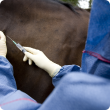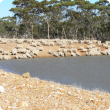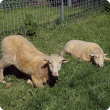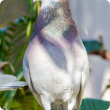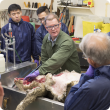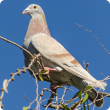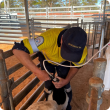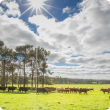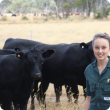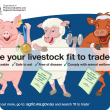Services
Search in Services
Filter services by topic
- Diseases (68) Apply Diseases filter
- Livestock health & diseases (68) Apply Livestock health & diseases filter
- Pests, weeds & diseases (68) Apply Pests, weeds & diseases filter
- (-) Remove Livestock disease surveillance filter Livestock disease surveillance
- Biosecurity & quarantine (68) Apply Biosecurity & quarantine filter
- (-) Remove Livestock biosecurity filter Livestock biosecurity
- (-) Remove Livestock & animals filter Livestock & animals
- Biosecurity (68) Apply Biosecurity filter
- Livestock species (55) Apply Livestock species filter
- Sheep (25) Apply Sheep filter
- Livestock management (24) Apply Livestock management filter
- Emergency animal disease preparedness (21) Apply Emergency animal disease preparedness filter
- Beef cattle (18) Apply Beef cattle filter
- Dairy cattle (14) Apply Dairy cattle filter
- Poultry & birds (10) Apply Poultry & birds filter
- Management & reproduction (10) Apply Management & reproduction filter
- Goats (8) Apply Goats filter
- Pigs (7) Apply Pigs filter
- Horses (6) Apply Horses filter
- Feeding & nutrition (6) Apply Feeding & nutrition filter
- Livestock movement & identification (5) Apply Livestock movement & identification filter
- Wildlife biosecurity (4) Apply Wildlife biosecurity filter
- Control methods (3) Apply Control methods filter
- Chemicals (3) Apply Chemicals filter
- Veterinary chemicals (2) Apply Veterinary chemicals filter
- Emergency response (2) Apply Emergency response filter
- Residues in livestock (1) Apply Residues in livestock filter
- Quarantine (1) Apply Quarantine filter
- Stockfeed (1) Apply Stockfeed filter
- Preventing residues (1) Apply Preventing residues filter
- Water (1) Apply Water filter
- Water management (1) Apply Water management filter
- Food, export & investment (1) Apply Food, export & investment filter
- Climate, land & water (1) Apply Climate, land & water filter
- Export services (1) Apply Export services filter
- Importing animals (1) Apply Importing animals filter
- Importing to Western Australia (1) Apply Importing to Western Australia filter
- Livestock research & development (1) Apply Livestock research & development filter

